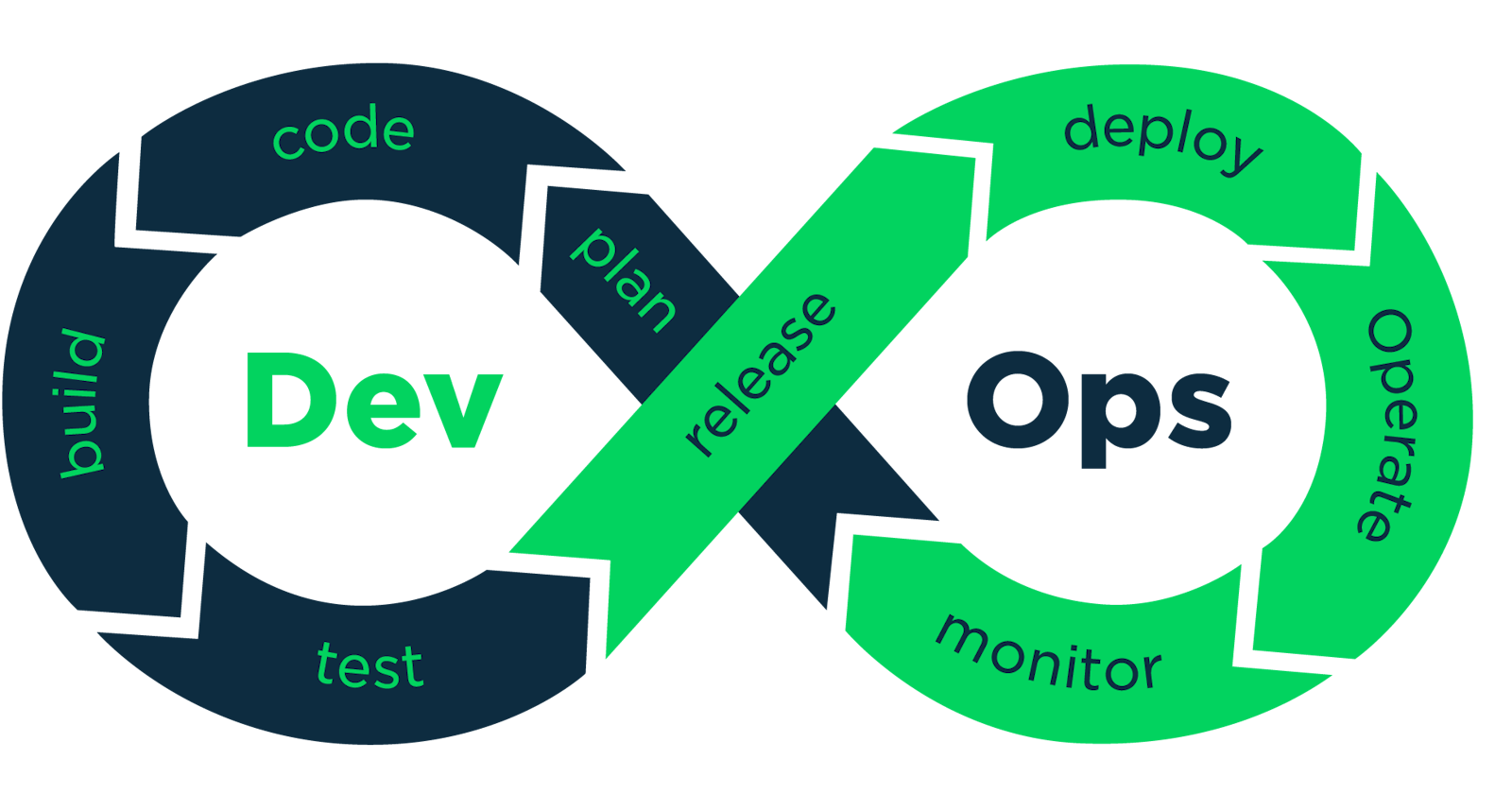Table of contents
No headings in the article.
Introduction
In the world of software development, there's a cool approach called DevOps that helps teams work together more smoothly and deliver software faster. DevOps combines the efforts of developers and operations folks to make things run more efficiently. In this article, we'll explore what DevOps is all about and why it's so beneficial.
What is DevOps?
Teamwork: DevOps is all about getting different teams to work together. Developers and operations people collaborate closely, sharing ideas and solving problems faster. This teamwork makes things go smoother and helps everyone do their jobs better.
Automating tasks: DevOps uses clever automation to speed things up. Boring and repetitive tasks like building and testing software are done automatically by computers, saving time and reducing mistakes. This automation also allows for quick and frequent updates to software.
Keeping an eye on things: DevOps is all about watching how software is doing. By constantly checking its performance, we can catch problems early on and fix them quickly. This helps make the software more reliable, secure, and efficient.
Why is DevOps great?
Faster software delivery: DevOps helps us release software updates faster and more often. With automation and teamwork, we can finish projects quicker and respond to changes in what customers want. This means we can bring new and improved software to people in less time.
Better teamwork and communication: DevOps brings people together. Developers and operations folks work side by side, sharing information and working towards the same goals. This creates a friendly and productive work environment where everyone understands each other and can work well together.
Higher quality software: DevOps helps us make sure the software we create is top-notch. With automated testing and continuous monitoring, we catch mistakes early on and fix them before they become big issues. This means the software works better, has fewer problems, and makes customers happier.
Saving time and money: DevOps helps us be more efficient, which saves time and money. By automating tasks and working together, we eliminate unnecessary work and reduce the chances of errors. This means we can do things faster and spend less money on fixing problems.
DevOps is a methodology that makes software development faster and better. By working together, automating tasks, and keeping an eye on software performance, we can deliver updates more quickly and with higher quality. DevOps saves time, money, and creates a more collaborative work environment where everyone can succeed.
Automation:
Automation in DevOps refers to the use of technology and tools to streamline and automate repetitive tasks throughout the software development and operations process. It involves automating activities such as building and deploying software, running tests, managing infrastructure, and monitoring performance. By leveraging automation, DevOps teams can save time, reduce errors, and accelerate software delivery. Automation enables consistent and efficient workflows, improves collaboration between teams, ensures software quality through automated testing, and enhances overall productivity. It allows developers and operations professionals to focus on high-value tasks, boosts efficiency, and enables faster and more reliable software releases.
Scaling:
Scaling in DevOps refers to the ability to expand and adapt software development and operations processes to handle increased workloads or growing demands. It involves implementing strategies, practices, and technologies that allow organizations to effectively manage larger deployments, handle higher user traffic, and maintain system performance and stability. Scaling in DevOps requires careful planning, automation, and the use of scalable infrastructure resources. It enables organizations to accommodate growth, handle fluctuations in demand, and ensure that their software and systems can effectively handle increased workload and user requirements without compromising performance or user experience.
Infrastructure:
In DevOps, infrastructure refers to the underlying technology and resources required to support software development, deployment, and operations. It encompasses physical servers, virtual machines, networking components, storage systems, and cloud platforms. Infrastructure in DevOps is managed programmatically using tools and techniques such as Infrastructure as Code (IaC), where infrastructure configurations are defined and managed through code. This approach allows for consistent, repeatable, and scalable infrastructure deployments. DevOps teams leverage infrastructure automation to provision, configure, and manage infrastructure resources efficiently, enabling agile software development, rapid deployments, and seamless scalability.
Why Devops is important:
DevOps is important because it makes teamwork better, helps get things done faster, and ensures that the software we use is of high quality. It brings together people who build the software and those who make sure it runs smoothly. By using special tools and techniques, it reduces mistakes and makes it possible to release updates quickly. DevOps also keeps an eye on the software all the time, fixing any problems before they become big issues. Overall, DevOps helps make sure we have good software that works well and keeps us happy.
